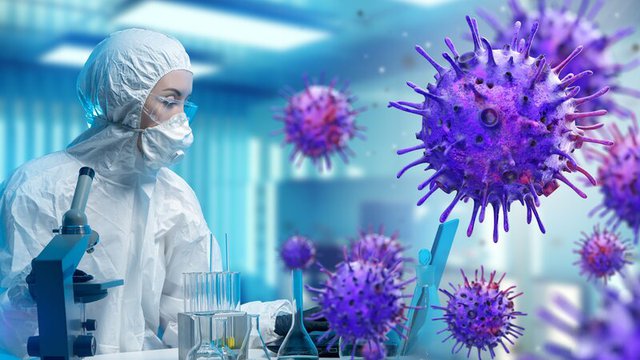
What does a virologist do?
Oct. 30, 2025

The COVID-19 pandemic brought the world of viruses into the spotlight — and with it, the crucial role of virologists. But what does a virologist do, and how can you become one?
In this article, we’ll explore the fascinating field of virology, from research and diagnostics to public health.
If you’re passionate about science and want to contribute to the understanding of infectious diseases, a great first step is studying a degree in Biotechnology at Universidad Europea in Madrid or a degree in Biotechnology in Valencia.
Understanding the role of a virologist
A virologist is a scientist who studies viruses — their structure, evolution, and how they interact with living organisms. Their goal is to understand how viruses work in order to prevent, diagnose, and treat viral infections.
Virologists play a critical role in:
- Research: uncovering how viruses replicate and mutate.
- Diagnostics: developing tests that detect viral infections.
- Prevention: contributing to vaccine development and antiviral therapies.
- Public Health: supporting responses to outbreaks and pandemics.
This multidisciplinary career combines biology, genetics, and immunology, requiring both laboratory and analytical skills.
Where do virologists work?
Virologists can be found in a wide range of environments, depending on their area of specialization. Common workplaces include:
- Research institutions and universities, where they study viral mechanisms and genetics.
- Pharmaceutical and biotechnology companies, developing vaccines or antiviral drugs.
- Hospitals and clinical laboratories, running diagnostic tests or advising on infection control.
- Public health organizations, such as the WHO or national health services, working on outbreak surveillance and epidemiology.
Some virologists also work in academic settings, teaching future generations of scientists while continuing their own research projects.
Key skills and knowledge for virologists
To succeed as a virologist, it’s essential to master both technical and analytical skills. Core areas of knowledge include:
- Molecular biology and genetics: understanding viral genomes and replication cycles.
- Microbiology and immunology: studying how viruses affect host organisms.
- Bioinformatics: analyzing viral sequences and mutations using computational tools.
- Laboratory techniques: such as PCR, cell culture, and microscopy.
Equally important are soft skills like critical thinking, teamwork, and problem-solving, especially in research and clinical environments where collaboration is key.
How to become a virologist
If you are looking for a career in biotechnology, possibly as a virologist, the journey typically begins with a degree in Biotechnology, Biology, or a related science. Programs like the Biotechnology Degree at Universidad Europea or its Valencia campus offer a solid foundation in molecular biology, genetics, and lab practice — all essential for a career in virology.
After completing your undergraduate degree, you can specialise further through:
- Master’s studies in virology, microbiology, or infectious diseases.
- Doctoral research, focusing on specific viruses or antiviral development.
- Professional experience in clinical or industrial labs, contributing to vaccine or diagnostic innovation.
This combination of academic and hands-on experience prepares graduates for impactful roles in science, healthcare, and industry.
The importance of virology in today’s world
Virology continues to be one of the most important fields in modern science. From understanding pandemics to advancing vaccines and gene therapy, virologists are essential in protecting global health.
Recent advances, such as mRNA vaccine technology and viral vector gene therapies, demonstrate the far-reaching impact of virology research. These innovations depend on professionals trained in the biological sciences — a path that begins with a comprehensive education in biotechnology.
Conclusion: why study biotechnology to become a virologist
Becoming a virologist means joining a scientific community dedicated to improving global health. With the right training and curiosity, you can play a key role in tackling the viral challenges of the future.
In summary:
- Virologists study viruses and their impact on humans, animals, and ecosystems.
- They work in research, healthcare, industry, and public health.
- A degree in Biotechnology provides the essential foundation to pursue this exciting career.
Learn more the science degrees at Universidad Europea and start your journey toward becoming a future virologist.